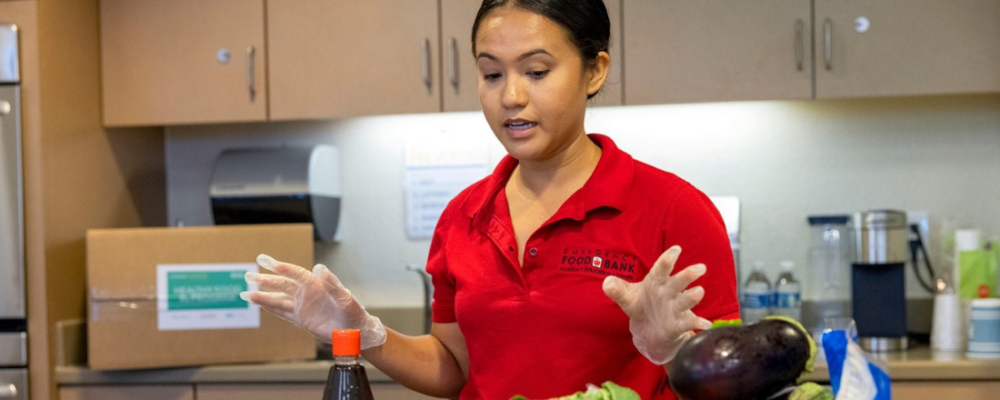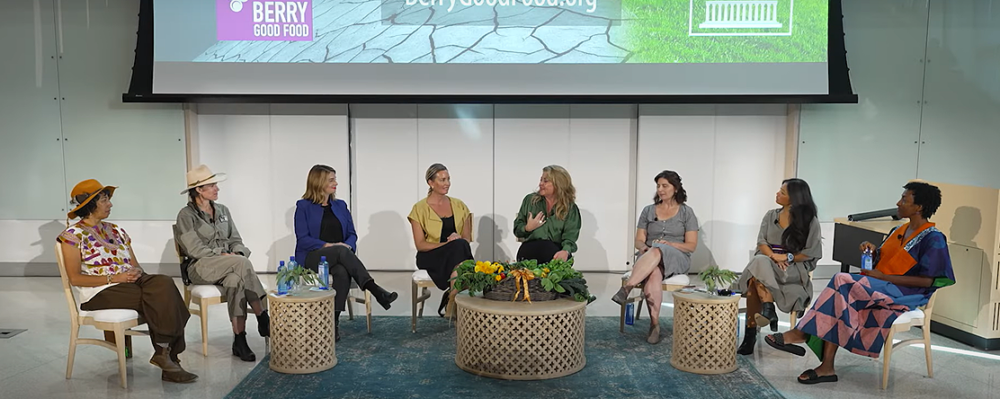
The Southeast Multi-State Racial and Health Equity SNAP-Ed Needs Assessment
- Maggie Wilkin
Raissa Sorgho
Jamie Frederick
-
Focus Areas
Capacity Building & Leadership, Chronic Disease Prevention -
Issues
Nutrition & Food Security, Physical Activity -
Expertise
Evaluation, Health Education & Promotion -
Programs
Center for Wellness and Nutrition

SNAP-Ed (Supplemental Nutrition Assistance Program Education) is the largest federal nutrition education program administered by the USDA. But equity and racial equity are ill-defined within SNAP-Ed, and these concepts are also not well-defined outside of SNAP-Ed consistently. There is no definition of equity in the SNAP-Ed Guidance or Evaluation Framework.
In this report, PHI’s Center for Wellness and Nutrition conducted a comprehensive formative evaluation with SNAP-Ed states and implementing agencies in the Southeast Region to identify strategies to ensure that a racial equity lens is used in the context of the SNAP-Ed Evaluation Framework.
The study analyzes four FNS Southeast Region (SER) states (Georgia, Mississippi, North Carolina, and South Carolina) and 18 implementing agencies from these states to collect and analyze data. PHI’s Center for Wellness and Nutrition facilitated monthly Evaluation Working Group (EWG) meetings with representatives from participating states and implementing agencies to collaborate on the project’s evaluation goals, objectives, and interpretation.
Using a literature review, surveys and stakeholder interviews, the report identifies systemic barriers to equity as they relate to: healthy eating; food resource management; need and readiness; nutrition supports; and physical activity supports. It also discusses specific implications for SNAP-Ed, as well as recommendations and additional resources for incorporating and addressing racial equity into SNAP-Ed programs and evaluation.
A lot of it [equity work] is around communication and setting expectations. And not assuming that as the academic partner or mainstream organization partner that we know everything, and we bring everything to the table. But expecting that we will go in not knowing anything and will go in listening.Study participant
People don’t understand what equity means. People don’t think it’s their place. People aren’t empowered to work on these issues. People have been doing the same thing, the same way, with the same money for years and years and years and change is hard...Study participant
Partnerships are so important, [because] authentic work requires more than just SNAP-Ed guidance and personnel.Study participant
We need to hire and train folks from diverse racial backgrounds. We were focused on hiring diverse backgrounds….I’m hiring people with tribal backgrounds. It’s how we portray our work internal and external to our organization. We’re no longer directors, we’re partners, this signals signs of equity.Study participant
We’re all measuring race/ethnicity equity differently. [There is] no clearStudy participant
instruments to do so.
We need more thorough tools to measure equity, to understand our equity status and to move this forward.Study participant
Incorporating Racial Equity: Recommendations for SNAP-Ed Programs & Evaluation
Below are specific recommendations that will make SNAP-Ed programming and evaluation activities more equitable and better serve the unique needs of diverse low-resourced communities in the Southeast and across the country. Piloting these recommendations in practice to build evidence for using an equity approach in SNAP-Ed is advised.
- Adopt a Common Definition and Application of Equity for SNAP-Ed. Aligning with the USDA Equity Action Plan: Priority 7: Upholding Civil Rights and Institutionalizing Civil Rights and Equity as part of the DNA and culture of USDA can set a roadmap to institutionalize best practices into SNAP-Ed culture. Once the common definition is established, specifying the application of equity in the context of SNAP-Ed in the guidance would be helpful.
- Adapt Program Timelines and Funding Models for a more Equitable Approach. SNAP-Ed historically runs on a one-year cycle funding cycle that includes a statewide needs assessment, program implementation, and outcome evaluation expected each year. This is not a feasible timeline to conduct community work.
- Build a Diverse and Equity-Focused SNAP-Ed Workforce. A competent, diverse workforce that understands how systems impact health outcomes as well as impact SNAP-Ed interventions and intended outcomes is critical to move health equity forward.
- Create and Adapt Nutrition Education Curriculum and Resources to be more Culturally and Linguistically Responsive. There is a need for more culturally and linguistically relevant nutrition education resources to serve the diverse populations that SNAP-Ed reaches across the Southeast.
- Build Strategic and Inclusive Partnerships. Building strategic and inclusive partnerships with Community-Based and Racial Justice organizations at the state and local levels to facilitate trust, equity, and sustainability in programming is essential.
- Community Engagement Opportunities for SNAP-Ed Eligible Residents. Authentically engaging a community starts with the funder and evaluator being honest about both the power and the limits of community engagement. This requires a mechanism for compensating community members.
- Disaggregate Data by Race/Ethnicity. Reporting and disaggregating data by race/ethnicity to help identify inequities, successes, and better tailor program activities are recommended for SNAP-Ed programs.
- Deemphasize Individual Behavior Change. Since all curriculum administered with SNAP-Ed funding needs to be practice or evidence-based, it seems excessive to continue to survey participants repeatedly on positive behavior changes associated with participation in already proven programs.
- Fix Methodological Issues with priority indicators and Survey Tools. Ensure metrics are clear and not ambiguous and have cultural and access considerations built in when collecting individual behavior change data. Avoid asking two concepts at once in a question or indicator and be specific.
Work With Us
You change the world. We do the rest. Explore fiscal sponsorship at PHI.
Support Us
Together, we can accelerate our response to public health’s most critical issues.
Find Employment
Begin your career at the Public Health Institute.


